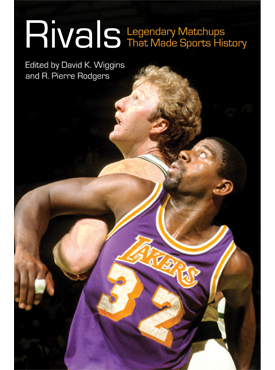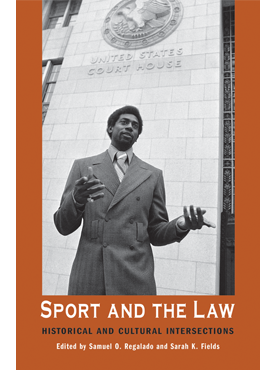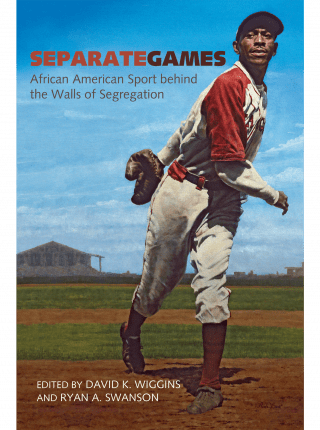Beyond C. L. R. James brings together essays analyzing the interconnections among race, ethnicity, and sport. Published in memory of C. L. R. James, the revolutionary sociologist and writer from Trinidad who penned the famous autobiographical account of cricket titled Beyond a Boundary, this collection of essays, many of which originated at the 2010 conference on race and ethnicity in sport at the University of West Indies, Cave Hill in Barbados, cover everything from Aborigines in sport and cricket and minstrel shows in Australia to Zulu stick fighting and football and racism in northern Ireland. The essays, divided into four sections that include introductory comments by each editor, are written by some of the more well-known sport historians in the world and characterized by a focus on the role of culture and sport in society in the context of both political economies and the state as well as colonial and postcolonial struggles. Included also are discussions on how sport at once brings people together, shapes the identities of its participants, and reflects the continuing search for social justice.
Beyond C. L. R. James
$39.95
Shifting Boundaries of Race and Ethnicity in Sports
Edited by John Nauright, Alan G. Cobley, and David K. Wiggins
978-1-55728-649-9 (paper)
Fall 2014
John Nauright is the author of Soccer Around the World: A Cultural Guide and Long Run to Freedom: Sport, Culture and Identities in South Africa.
Alan G. Cobley is the author of The Rules of the Game: Struggles in Black Recreation and Social Welfare Policy in South Africa.
David K. Wiggins is the coeditor of Rivals: Legendary Matchups That Made Sports History and Out of the Shadows: A Biographical History of African American Athletes.
“An international group of scholars, analyzing a wide range of societies and subcultures, demonstrates how the study of sport provides new and deeper insights into race, ethnicity, gender, assimilation, and intergroup relations. The book, which applies social science theories and methods, will be highly useful to researchers and students in many disciplines.”
—Stephen H. Norwood, Antisemitism and the American Far Left, The Third Reich in the Ivory Tower, and Real Football
“A well-conceived traverse of the border regions of race, ethnicity, gender, culture, and identity in the modern sporting world. The chapters in Beyond C. L. R. James range from the cricket pitch to far-flung venues where sport has been deployed to break down racial barriers, reinforce ethnic pride, and create new sources of ‘community’ in the age of globalization. An intriguing volume.”
—Patrick B. Miller, author of The Unlevel Playing Field: A Documentary History of the African American Experience in Sport
“Illuminating …. I learned a lot from these monographs, which were a pleasure to read. I applaud the editors for putting together this excellent collection.”
—Steven A. Riess in Journal of Sport History, Fall 2015
SECTION ONE: Beyond C.L.R. James: Studying Race and Ethnicity in Sport
Introduction – John Nauright
Chapter 1
Beyond C.L.R. James: The Study of Sport, Race and Ethnicity – Sir Hilary McD Beckles
Chapter 2
Ambiguity within the Boundary: Re-reading C.L.R. James’s Beyond a Boundary – Malcolm MacLean
Chapter 3
Sport, Embodiment and Race in South Africa – Douglas Booth and John Nauright
Chapter 4
Aborigines and Australian Sport: Critical Reflections – Daryl Adair
Chapter 5
Racial Issues Beyond Black and White: The Luis Suarez Incident – Verner Møller
SECTION TWO: Race and Ethnicity in Historical Context
Introduction – David K. Wiggins
Chapter 6
Cricket and Minstrel Shows in Australia’s Colonial Far North: 1869-1911 – Matthew Stephen
Chapter 7
Ways of Seeing and Playing: Zulu Stickfighting, Bodies and Race in South Africa – Benedict Carton and Robert Morrell
Chapter 8
Immigration, Sport and the Italian Quest for Identity in the USA – Gerald R. Gems
Chapter 9
Black Women Athletes on the Margins – Jennifer H. Lansbury
SECTION THREE: Ethnicity, Migration, Bodies and Sport
Introduction – John Nauright
Chapter 10
Tamales, Tapetes and Basketball: Signs of Oaxacan Ethnicity in the United States – Charles Freuhling Springwood
Chapter 11
Sport in Migrant Communities – Transnational Spaces and Gender Relations – Gertrud Pfister
Chapter 12
Masculinities Beyond Otherness: Cricket, Gender and Ethnicity in Oslo, Norway – Thomas Michael Walle
Chapter 13
Ethnicity, National Identity and Cricket in Contemporary Trinidad – Anand Rampersad
SECTION FOUR: Crossing Boundaries/Maintaining Boundaries
Introduction – Alan Cobley
Chapter 14
Into the Great White Yonder: Stabilizing Whiteness in Alternative Sports – Michael Atkinson and Kevin Young
Chapter 15
A Unique Social Tapestry: Football, Sectarianism and Racism in Northern Ireland – David Hassan and Ken McHue
Chapter 16
“Who do ‘They’ Cheer For?” Cricket, Diaspora, Hybridity and Divided Loyalties Among British Asians – Thomas Fletcher
Chapter 17
The Audacity of Usain: Spatial Analysis of the Beijing Olympics – James McBean, Michael Friedman and Callie Batts
Sport, Culture, and Society is a series from the University of Arkansas Press that publishes monographs and collections for academics and general readers in the humanities and social sciences. Its focus is the role of sport in the development of community and the forging of individual, local, regional, and national identities.
Sport is an extraordinarily important phenomenon that pervades the lives of many people and has enormous impact on society in an assortment of different ways. At its most fundamental level, sport has the power to bring people great joy and satisfy their competitive urges while at once allowing them to form bonds and a sense of community with others from diverse backgrounds and interests and various walks of life. Sport also makes clear, especially at the highest levels of competition, the lengths that people will go to achieve victory as well as how closely connected it is to business, education, politics, economics, religion, law, family, law, family, and other societal institutions. Sport is, moreover, partly about identity development and how individuals and groups, irrespective of race, gender, ethnicity or socioeconomic class, have sought to elevate their status and realize material success and social mobility.
Sport, Culture, and Society seeks to promote a greater understanding of the aforementioned issues and many others. Recognizing sport’s powerful influence and ability to change people’s lives in significant and important ways, the series focuses on topics ranging from urbanization and community development to biography and intercollegiate athletics. It includes both monographs and anthologies that are characterized by excellent scholarship, accessible to a wide audience, and interesting and thoughtful in design and interpretations. Singular features of the series are authors and editors representing a variety of disciplinary areas and who adopt different methodological approaches. The series also includes works by individuals at various stages of their careers, both sport studies scholars of outstanding talent just beginning to make their mark on the field and more experienced scholars of sport with established reputations.
The series is edited by David K. Wiggins.





